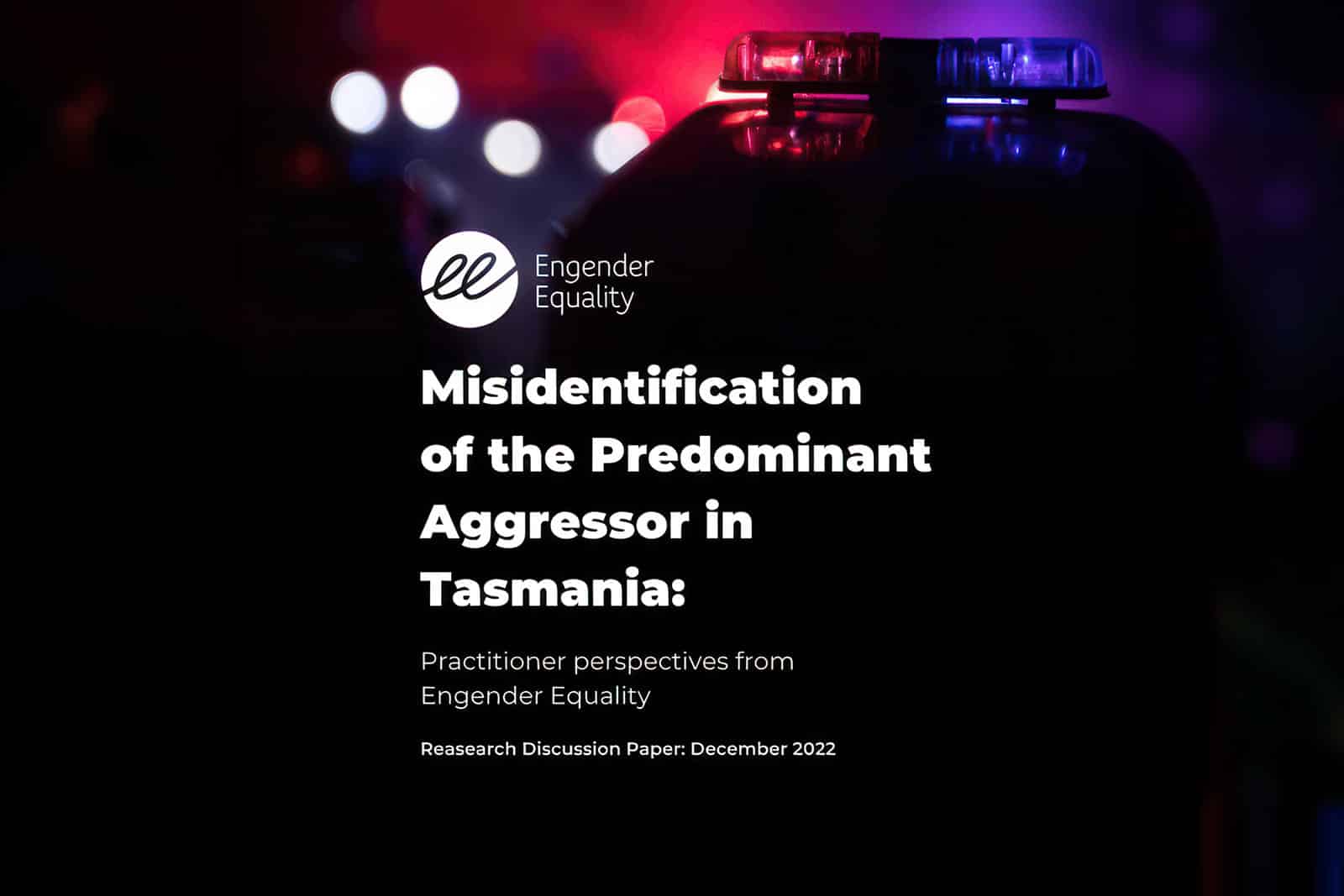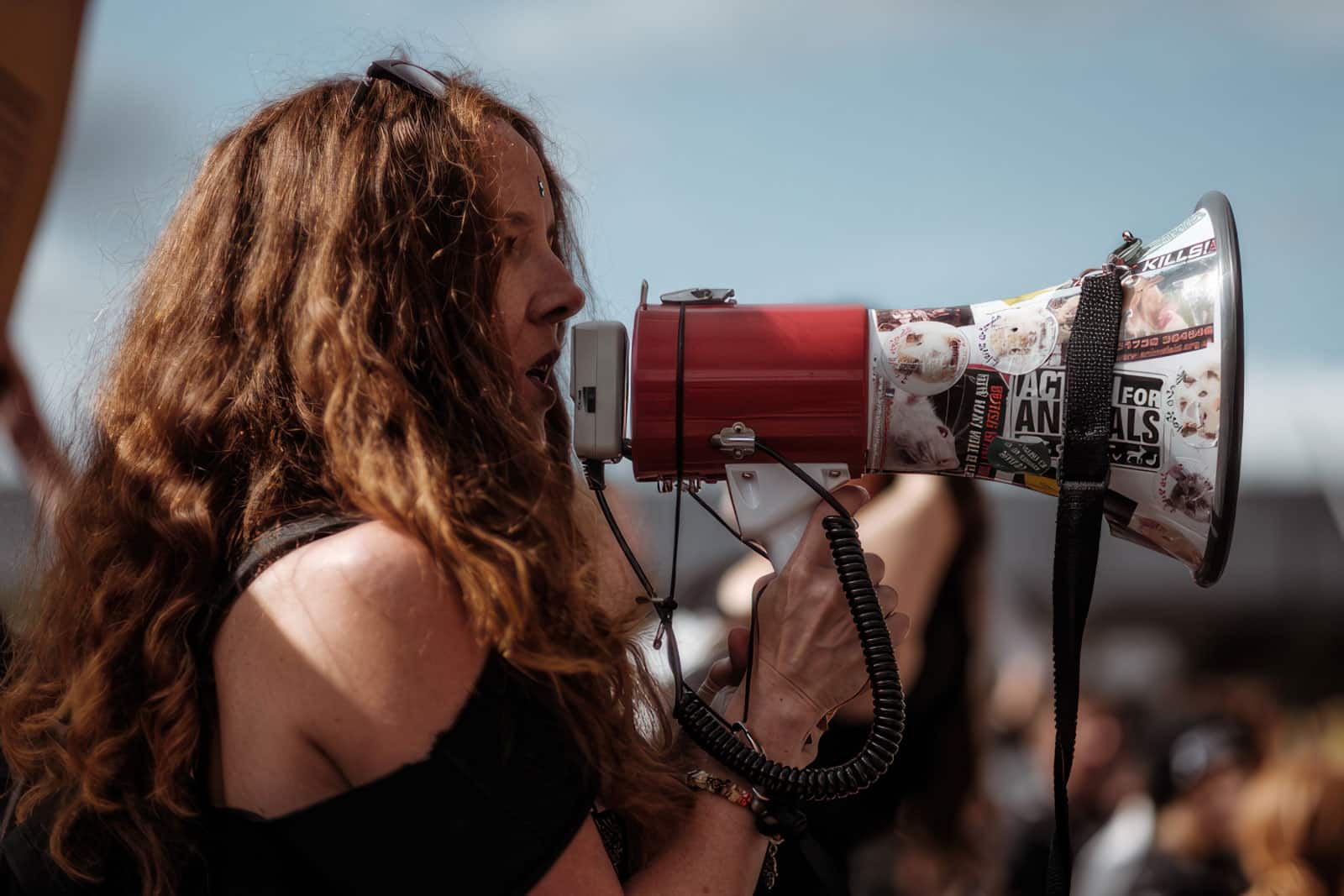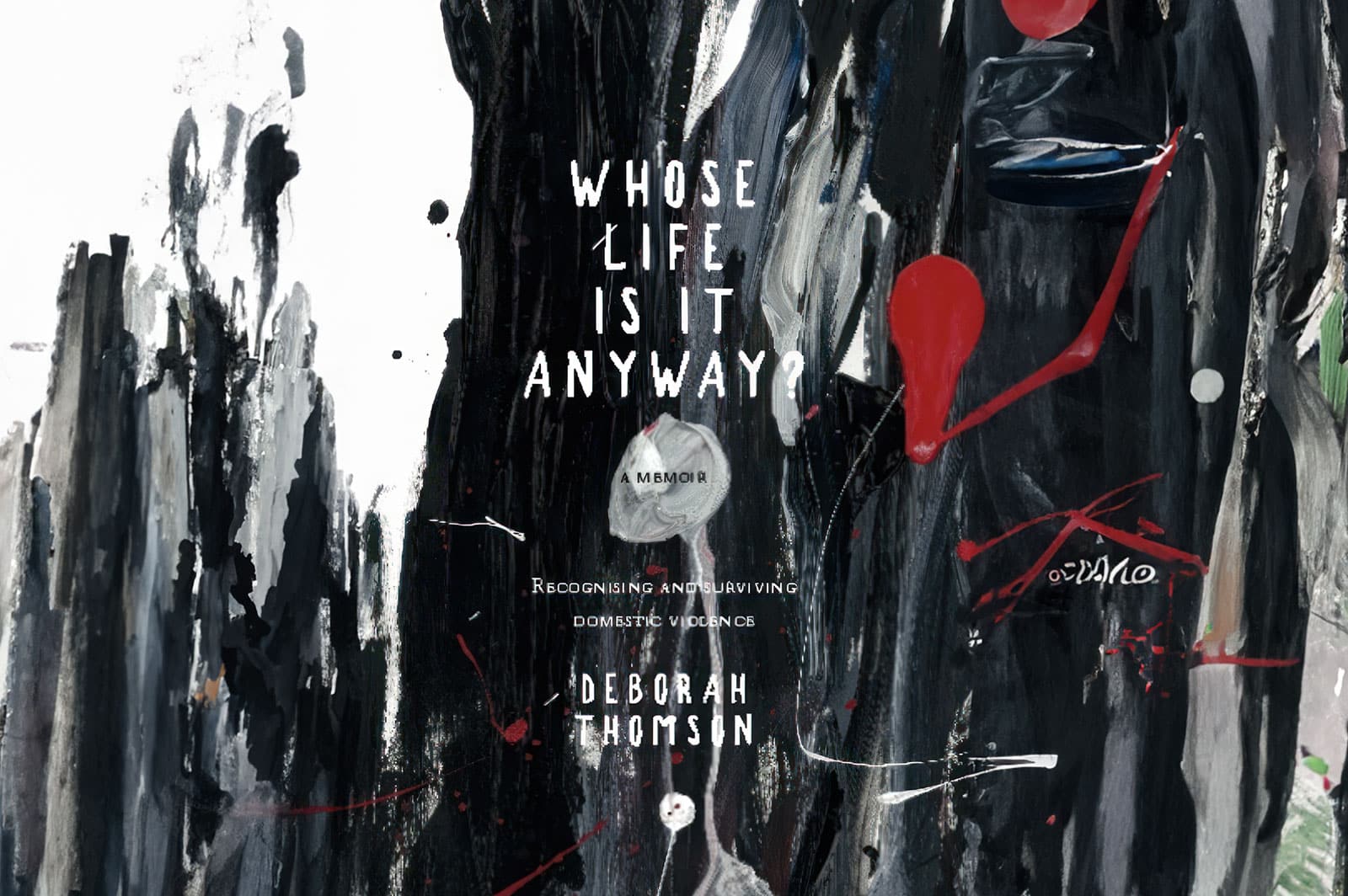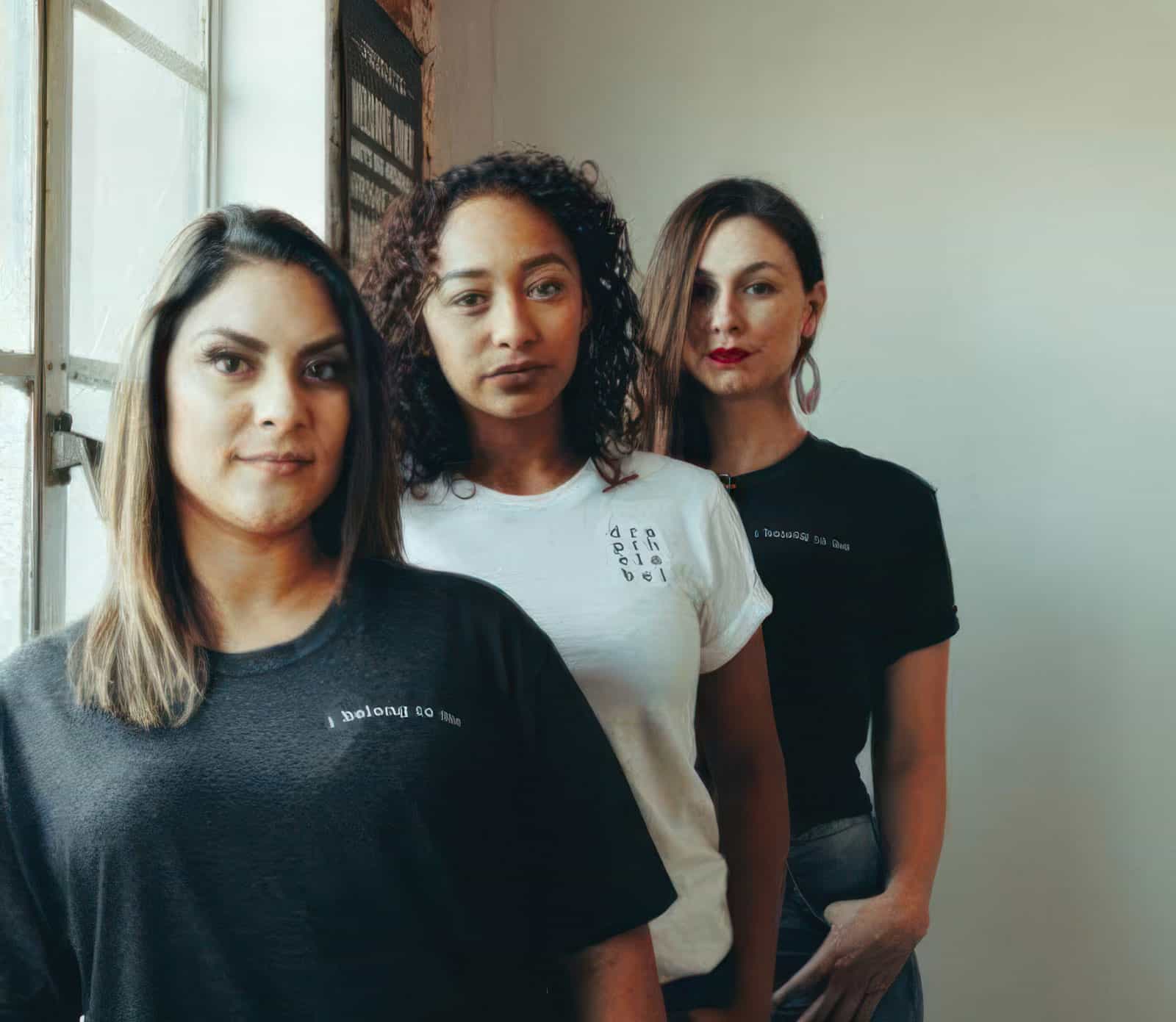Media Release - Doctors the key to early intervention for abuse of children with disability
MEDIA RELEASE
16 July 2025
DOCTORS THE KEY TO EARLY INTERVENTION FOR ABUSE OF CHILDREN WITH DISABILITY
As the community celebrates people with disability this month, Engender Equality and partners are launching a primary care support program for general practitioners and their staff to identify and respond to family and sexual violence (FSV).
Engender Equality CEO, Alina Thomas said,
“On average, at least 28.1% of women who enter a Tasmanian General Practice, every day, will be victim-survivors of Family and Sexual Violence (FSV).
“Studies have also shown that children with disabilities are between two and four times more likely to experience sexual abuse.
“Engender Equality has partnered with Laurel House and Sexual Assault Support Services to deliver the Primary Care Family and Sexual Violence (PCFSV) support program which aims to support doctors and their staff in identifying and responding to FSV.
“People with disability who also face communication challenges are at heightened risk of interpersonal violence.
“Communication requires that you look for, identify, and remove barriers and actively support people with appropriate devices, communication boards, and your undivided attention.
“While violence being identified by doctors offers the opportunity for early intervention, we must all be vigilant and prepared to respond if we become aware of or suspect anyone is at risk of family or sexual violence,” Ms Thomas said.
Engender Equality is a not-for-profit agency working with and on behalf of individuals, families and communities affected by family and domestic violence in Tasmania. We see gender inequality as both the cause and the context of family violence. Only by actively challenging gender-based oppression can we achieve positive and respectful relationships within healthy, inclusive structures and institutions.
For more information on the PCFSV support initiative email admin@pcfsv.org.au. For any other family and domestic violence matters contact Engender Equality at (03) 6278 9090, admin@engenderequality.org.au or visit our website at www.engenderequality.org.au.
This Primary Care Family and Sexual Violence support initiative is supported by funding from Primary Health Tasmania (Tasmania PHN) through the Australian Government’s Primary Health Networks Program.
Ends.
Media Contact: Alina Thomas 0438 788 291
Media Release - Women with lived experience of family violence and incarceration to spearhead advocacy
MEDIA RELEASE
13 June 2025
WOMEN WITH LIVED EXPERIENCE OF FAMILY VIOLENCE AND INCARCERATION TO SPEARHEAD ADVOCACY
Family violence service, Engender Equality is inviting women with a lived experience of family violence and incarceration to join their lived experience Advocates for Change program and help drive systemic, community and social change.
Chief Executive Officer, Engender Equality, Alina Thomas said,
“Engender Equality prioritises the voices of victim-survivors in all activities related to the Advocates for Change program.
“Women who have experienced incarceration deserve the same support, respect, and opportunities as all women affected by family violence.”
“To reflect this, we are extending our existing Advocates for Change program to better support this part of our community.”
“The factors leading to women entering and returning to prison are deeply complex and often rooted in repeated and intergenerational experiences such as violence, homelessness, poverty and child removal.” she said.
“These issues are even more pronounced for First Nations women and girls, who remain disproportionately represented in the prison population.”
Advocates for Change is a volunteer program, where participants are trained and supported to share their lived experience and expertise to improve outcomes for all victim-survivors and ultimately end family and sexual violence. Opportunities include, public speaking, talking to the media, contributing to law amendment submissions and providing input into policy and activity design.
Women who have been incarcerated and survived violence bring valuable expertise about how the criminal justice, legal and support services systems operate, and often fail. They can see problems and injustices that others might overlook.
When victim-survivors speak up and take on roles to advocate for change, they directly influence the way laws, services and the justice system work. Their insights can push for fairer, trauma-informed responses for people who have been harmed.
Lived-experience advocate and Coordinator of the Advocates for Change Program, Sneha Sapkota explains, “At Engender Equality, we are passionate about supporting social change and advocating for the rights of women, mothers and victim-survivors. We believe that sharing our platform with victim-survivors leads to more just and effective outcomes for everyone.”
“Of course, the program prioritises the emotional and personal safety of all advocates. This includes assessing potential risks, their individual readiness, and offering professional counselling as well as ongoing peer support,” Ms Sapkota said.
The new intake includes a four-day training program designed to build understanding about the drivers of violence and current statistics. It provides practical skills such as engaging with the media, identifying and crafting effective messages, writing and delivering a speech, and using lived experiences to influence decision-makers.
Currently, the Advocates for Change team includes more than thirty diverse victim-survivors from across Tasmania. Together, they have meaningfully contributed to key initiatives, including feedback to Department of Premier and Cabinet’s Three essential elements of an effective Tasmanian Child Sexual Abuse Reform Strategy and Action Plan‘; influencing change to Tasmania’s strangulation laws which now identify it as a crime in itself; Participation in preparation of A statement from victim-survivors in the National Plan to End Violence against Women and Children 2022-2032; and presentations to the Disability Royal Commission during its 2022 Tasmanian hearings.
Ends.
Media Contact: Alina Thomas 0438 788 291
For interviews or further photos please contact Alina
Media Release - Systemic failures devastate lives of family violence victims
MEDIA RELEASE – For immediate release: 17 October 2024
Systemic Failures Devastate Lives of Family Violence Victims
Forum on Systems Abuse in Family and Sexual Violence
Hobart, TAS – The Southern Domestic Violence Coordinating Committee (DVCC) is hosting a crucial forum on systems abuse in family and sexual violence. This event will shed light on the way people who use abuse take advantage of systems and manipulate formal processes to continue their litany of abuse and intimidation.
The forum draws on victim-survivor informed case studies to illustrate the devastating effects of the abuse and discuss ways to improve the support and protection systems in Tasmania.
Systems abuse occurs when the very systems designed to protect and support survivors of family and sexual violence are used to perpetrate harm, often through misidentification, lack of coordination, and a gross misunderstanding on the presentation of family violence. “When our systems fail to understand what family violence actually is, we find people who use abusive behavior manipulate the systems creating a terrible and insidious problem that exacerbates the trauma experienced by victim-survivors. When the systems meant to protect victim-survivors fail, it not only undermines their wellbeing, safety and recovery but also erodes their trust in the justice system,” said Alina Thomas, CEO of Engender Equality.
The forum will bring together key stakeholders, including survivors, advocates, service providers, and policymakers, to address the critical issue of systems abuse. Featured speakers include Zoe Rathus AM, Senior Lecturer at Griffith University Law School, who has extensively published and presented on women and the law, with a focus on the family law system and the impact of domestic and family violence on women and children. Also joining is a representative from the Federal Family Violence Commissioner’s Office, along with Sara Stevens, developer of a comprehensive four-day Family Violence Screening and Assessment training program, now mandated for staff at the Safe Families, Safe Kids Advice and Referral Line and Child Safety Service within the Department for Education, Children and Young People in Tasmania.
The day will cover several critical topics, including the impact of systemic failures on survivors of family and sexual violence, strategies for improving coordination and communication among support services, the role of policy and legislation in addressing systems abuse, and insights from frontline practitioners and researchers.
“Addressing systems abuse is crucial for ensuring that our response to family and sexual violence is effective and compassionate. We must listen to the experiences of victim-survivors as their expertise is essential to our understanding. Then, we must work together, with a whole-hearted commitment to closing the gaps in our support systems and providing a coordinated, survivor-centered approach,” added Ms. Thomas.
The event will take place on Monday, 21 October 2024, at 10:00AM at the Moonah Arts Centre.
Contact: For all media enquiries, please contact: Alina Thomas CEO, Engender Equality
E: ceo@engenderequality.org.au M: 0438 788 291
Photos and interview opportunities are available following the event, 21 October at 1pm – Moonah Arts Centre.
Discussion Paper Launch - Misidentification of the Predominant Aggressor in Tasmania
For immediate release: 28 February 2023
The injustice of reporting family violence – Engender Equality to release research discussion paper on the misidentification of the predominant aggressor by family violence respondents
- A study by Women’s Legal Service NSW reported that two-thirds of women who had been identified as primary aggressors were victim survivors.
- A study by Women’s Legal Service Victoria reported that one in ten women who were victim-survivors had been misidentified as primary aggressors.
- Tasmanian has a unique legislative approach to family violence which may contribute to misidentification.
Following a public forum held in 2022, Engender Equality is holding an event at Government House Hobart on Thursday 2nd March, 2023 to launch their research discussion paper on the misidentification of the predominant aggressor in Tasmania.
Engender Equality is releasing a research discussion paper on the misidentification of the predominant aggressor in Tasmania with an event at Government House Hobart to coincide with International Womens’ Day. This follows the successful public forum held in 2022 that provided the opportunity for community representatives and government representative to talk about the issue.
The research discussion paper Misidentification of the Predominant Aggressor in Tasmania: Practitioner Perspectives from Engender Equality provides important insight through the perspectives of family violence practitioners into the experiences of victim-survivors of family violence who have reported to police but have been wrongly identified as the aggressor in the relationship.
Misidentification of predominant aggressor occurs when the police or other responder inaccurately determine who the person using abusive behaviour is in a family violence relationship.
Previous research has shown that predominant aggressors are more likely to use violence for abuse and control, whereas victim-survivors are more likely to use violence in retaliation or self-defence. In response to a report of family violence, police may misinterpret these nuanced dynamics, leading them to misidentify the victim-survivor as the predominant aggressor.
“There is a growing body of research to suggest that women are being misidentified as predominant aggressors in increasing numbers in Tasmania. Women who have been misidentified may face criminal charges, poverty, removal of children, loss of reputation and employment and re-traumatisation through the system that is meant to be there to protect them. Misidentification may be influenced by systems abuse (perpetrator using the system to use power and control) and incident-based policing. It is clear that the impacts are broad and far-reaching and influence the recovery of a victim-survivor in many ways” Ms Thomas explained.
“We are hoping that this paper will assist police and stakeholders who provide family violence support to gain greater insight into the issue and encourage policy and legislation to be reviewed to reduce the number of victim-survivors who are mis-identified. Engender Equality is very passionate about advocating to address this problem and hope that our research leads to change.” Ms Thomas added.
A full copy of the report will be made available the website engenderequality.org.au after the event.
Attendance at the event is by invitation only but there will be a media opportunity on the lawns of Government House after the event which runs from 12:30 – 2:00 pm.
Speaking out to end violence against women
Friday 1st February 2019
Speaking out to end violence against women
- Approximately one quarter of women in Australia have experienced at least one incident of violence by an intimate partner.
- Australian women are most likely to experience physical and sexual violence in their home, at the hands of a former or current male partner.
- On average, one woman a week is killed by her intimate partner.
(Australia’s National Research Organisation for Women’s Safety, 2018)
Despite these statistics, the voices of women who have experienced violence and abuse are often missing from the media.
In partnership with Our Watch, Tasmanian family violence service Engender Equality is facilitating a media advisory training program called Advocates for Change.
“The Advocates for Change program offers training to Tasmanian survivors of family violence to safely tell their story. It aims to improve the reporting of family violence in Tasmania and address the stigma that family violence victim’s experience,” explains Alina Thomas CEO of Engender Equality.
The Tasmanian Government is a member of Our Watch, the national organisation set up to drive change in the culture that leads to violence against women. Our Watch focuses on strengthening primary prevention messages, highlighting the connections between gender inequality and violence against women.
“Engender is very excited to be running this program with Our Watch. Over the years we have had many women want to share their experience to support other people who have experienced family violence and this program will give the resources to make that happen in a safe way,” Ms Thomas explained.
Training is free for participants and will be conducted in Hobart and Launceston.
Expression of interest remain open until Friday 8 February 2019 and can be completed online via this link: https://form.jotform.co/83378373663872
For all media enquiries please contact:
Alina Thomas
Tasmanian women’s organisations support birth certificate changes
Wednesday 7th November 2018
Speaking up for Tasmania’s Women
In recent debate regarding proposed amendments to the Justice and Related Legislation (Marriage Amendments) Bill 2018, incorrect statements have been given a platform by groups such as Women Speak Tasmania (‘WST’).
WST say the safety of women’s services is at risk if transgender women are allowed access.
Further, WST claim to speak for the concerns of the broader Tasmanian community in this – presumably for Tasmanian women.
We are a group of women’s specialist services. WST did not consult our representatives before making these statements and they do not represent the views of our organisations, staff, Boards of Governance or membership.
It is our position that transgender women are women and they are welcome at our services.
As key organisations representing women’s voices in Tasmania, our service policies and advocacy positions are developed through regular processes of discussion and consultation. We have not been informed of any consultation process by Women Speak Tasmania through which their policies were developed.
We can say with certainty that they do not represent the large number of women associated with our organisations. They do not speak for us.
The proposed amendments are narrow in scope, relating to two discrete issues: the removal of sex markers on birth certificates; and the removal of the requirement for transgender people to undergo sex reassignment surgery in order to obtain documents that properly reflect their true gender. To assert that the reforms represent anything more than this is wrong.
Women Speak Tasmania hold the position that transgender women are not women and oppose the amendments on this basis. This is unjust and prejudicial.
WST also argue that transgender women pose a threat to women’s safe spaces.
There is no research or service experience to suggest that men who seek to harm women change their gender or masquerade as transgender women in order to do so.
Acknowledging in law the human rights of transgender people does not reduce the human rights enjoyed by non-transgender people. Protecting women’s rights and supporting transgender people are not mutually exclusive.
Through our collective experience of providing legal, health, domestic violence and housing services to women, we are already successfully supporting transgender women who, it should be noted, are often themselves victims of violence and targeted by people who use abusive behaviour.
Arguments such as those promulgated by WST only result in greater danger, including physical assaults to transgender women, non-binary individuals, and women who do not conform to stereotypes of femininity. These attitudes also stand as barriers to gender diverse people accessing services and as such, they remain at greater risk to violence and abuse.
For the vast majority of the population the proposed amendments will have no apparent practical impact. But for those in the transgender, gender diverse and intersex community the impact is profound.
The amendments do very little, beyond making life significantly easier for a small group of people. To the extent that WST have an issue with that, it is clearly an ideological one and in its effect it is discriminatory.
Our organisations have always been a safe and welcoming place for all women and they remain so.
For further media enquiries please contact:
Alina Thomas
Chief Executive Officer
Susan Fahey
Women’s Legal Service Engender Equality
Local author tells personal story to support family violence victims (book launch)
Monday, 16th April 2018
Local author tells personal story to support family violence victims (book launch)
Deborah Thomson found the peaceful life she always wanted in Chasm Creek, on the North Coast of Tasmania, but it took her a long time to get there. Deborah Thomson has written a book about what happened when her life was changed irrevocably by an abusive partner, a relationship which she endured for 17 years.
Whose Life is it Anyway? Recognising and Surviving Domestic Violence published by Brolga Publishing, aims to support people being impacted by abusive partners. “I have written this book to help others in similar situations to leave early in their relationship, before they too suffer debilitating trauma,” stated Deborah Thomson author of the new book. “Since leaving I have come to realise how debilitating trauma is when associated with staying in a long-term violent partnership. Lived experience has shown me that such trauma can take half a lifetime to resolve,” explains Ms Thomson.
Alina Thomas, CEO of Family Violence service SHE, says that Deborah’s experience is not uncommon. “Trauma is an inevitable consequence of long term abusive relationships. We see hundreds of women, every year in Tasmania who are left with physical and emotional symptoms of trauma due to ongoing abuse in relationships.”
The courage of women who have survived Family Violence can give hope to other people experiencing family violence as well as be a source of inspiration to the broader community. Family Violence advocate Rosie Batty changed the way that Australia responded to family violence and our local advocates say there is still a lot that needs to happen. As Author Deb Thomson explains, “we need to do whatever we can to keep the issue of DV in the public’s vision while simultaneously supporting victims in whatever way possible”.
Alina Thomas believes there needs to be a greater investment in primary prevention and early intervention. “In Tasmania we are very focused on a tertiary response, what the police and the courts do after the violence has occurred. But if we are going to see a reduction in the family violence epidemic we need to be investing in programs that target the problem before it escalates to this point,” stated Ms Thomas.
Deborah Thomson’s book Whose life is it Anyway will be launched by Her Excellency Professor the Honourable Kate Warner AC at Fullers Bookshop on Wednesday 18th April at 5.30pm.
For photos, interviews and more information please contact:
Deborah Thomson, Author
Alina Thomas, CEO SHE
Improving services for mental health and family violence
Monday 14th November, 2016
Improving services for mental health and family violence
Tasmanian Family Violence Service, SHE (Support, Help and Empowerment), has today released a Family Violence toolkit for mental health professionals. The toolkit provides a go to guide on the basics of working with people who are experiencing family violence.
This important new resource, being launched by Robin Banks, the Equal Opportunity Commissioner of Tasmania, also supports family violence training SHE has delivered to the mental health sector.
“With the growing awareness of the causes and prevalence of family violence in Tasmania, comes a responsibility for community services to be able to work effectively with those who are being impacted,” explained, Mental Health Council of Tasmania CEO, Connie Digolis.
There is a significant body of research that links a bi-directional causal relationship between exposure to family violence and persistent mental health challenges. However, family violence is often a hidden problem among people seeking support for their mental health issues[i].
SHE Executive Officer, Alina Thomas states that, “if women are seeking help with symptoms of mental illness it can be very likely that family violence is an underlying issue. This resource will be the first of its kind to bring together the specialist practice of family violence intervention and the important work that is being done in the mental health sector.”
Under a grant received from the Partners in Recovery Tasmania, SHE has also designed and delivered a Champions Program to upskill those working in the mental health field to become more confident in responding to people experiencing mental health issues and family violence. The program has been an outstanding success with 12 people from across the State graduating from the intensive training today.
“Recognising and responding effectively to people who have experienced family violence requires specialist knowledge of the dynamics and conditions that they have experienced” explained Alina Thomas, Executive Officer of SHE.
The SHE program has provided important insight and understanding to the complex issue’s surrounding mental health and family violence. It is anticipated that many people, both workers and the community they support will benefit from the new toolkit and training.
(If you need help, please call Family Violence Counselling and Support Services on 1800 608 122 or SHE on 03 6278 9090)
[i] TREVILLION, K., ORAM, S., FEDER, G., & HOWARD, L. M. (2012). Experiences of Domestic Violence and Mental Disorders: A Systematic Review and Meta-Analysis, PLoS ONE, 7(12)
Women want women’s services – family violence victims speak out
Women want women’s services – family violence victims speak out
Tasmanian Domestic Violence Service, SHE (Support, Help and Empowerment), has released new research on the needs of women who have experienced domestic violence in an attempt to better inform services across the State.
The Hodgman Government is in the process of releasing over 5.5 million dollars to improve service delivery to people in, or leaving, violent and abuse relationships. “With many family violence services experiencing unparalleled high levels of demand, it is commendable that the Liberal Government is showing unprecedented support for domestic violence service in Tasmania”, declared Alina Thomas, Executive Officer of SHE.
The research conducted on behalf of SHE, investigates the experience of women accessing services to address the impacts of family violence. “What we found is that, while each woman had a unique experience leading them to needing help, the service needs were surprisingly similar….we found that empowerment was identified as the most important priority for women. Empowerment is about being heard and believed, regaining autonomy and realising your choices,” explained key researcher Sarah Van Est.
With the primary drivers of family violence now widely identified as gender inequality and rigid gender roles, women-orientated services that draw on a feminist framework for service delivery have been shown to yield the best outcome for family violence victims. “Women need to know that their safety is paramount. They want to be heard and they want to be believed. For women who have experienced repeated abuse and made to feel like they are responsible, to blame or deserve the abuse that has been inflicted up them, empowerment is a very powerful and healing experience”. Ms Thomas states.
One of the research participants shared, “the biggest thing for me, it that my counsellor was the only person ever, in all my contact with services, who never asked me to consider things from his point of view and didn’t ever make me doubt that it wasn’t bad, or significant, or life affecting”.
SHE is hoping that the research will continue to guide the development of family violence services across the State to ensure best practice and value for money.
The SHE research will be launched today (on the 16th March) by her Excellency Professor the Honourable Kate Warner AM, at Government House, Hobart.
Rethinking safety for women with disabilities
Combined Media Release, Langford, Speak Out Advocacy and SHE Inc.
2 December 2015
Rethinking safety for women with disabilities
Speak Out Advocacy, Langford and SHE Inc join together on the International Day for People with Disability to call for investment in safer communities for people with disabilities.
The 3rd December is International Day for People with Disability. Services are using this opportunity to call for an improved response to safety that listens to the particular needs of people with disabilities.
“People with disabilities don’t always fit neatly into domestic violence services. People’s primary relationships are with family, carers and possibly other residents at accommodation facilities” explained Alina Thomas, EO of SHE, domestic violence service for women.
Women with disabilities are 40% more likely to be victims of domestic violence than their peers and they experience higher levels of violence. Ninety percent of women with an intellectual disability have been subjected to sexual abuse, often before they turn 18.
Disability service providers recognise the gap in services for their clients. “We know that women with disabilities experience violence and abuse at a much higher rate than the rest of the population, however there are no tailored services to address this issue” stated Jenny Dixon, CEO at Speak Out Advocacy.
Women with Disabilities Australia also encourage a more substantial response to the issue and promote the need for empowerment programs for women with disabilities to be able to understand and recognise what constitutes violence and abuse. Family members, carers and frontline staff also need to be equipped in a practical and pragmatic way that promotes safety and wellbeing in a way that is respectful and supportive to women.
“Women can become at risk of abuse and violence as they seek to form social networks and forge their independence. Women with disabilities can feel quite isolated and this is why we need specialised service responses that are aware of these particular issues,” stated Kate Gillham from Langford Support Services.
Speak Out Advocacy and SHE have worked collaboratively this last year to bring together women with disabilities who have experienced violence and abuse. It is hoped that in 2016 this dynamic group will further inform a tailored response to violence and abuse.
Sources
Fact Sheet: Violence Against Women with Disabilities Prepared by Carolyn Frohmader, Women with Disabilities Australia (WWDA) Australian Civil Society Delegation to the 53rd Session of the Committee Against Torture, Geneva, November 2014 http://www.pwd.org.au/documents/temp/FS_Violence_WWD’s.pdf
Tayton, S., Kaspiew, R., Moore, S. and Campo, M. (2014) Groups and Communities at Risk of Domestic and Family Violence, Australian Institute of Family Studies.
http://wwda.org.au/call-for-urgent-action-end-violence-against-people-with-disability/
Hegarty and O’Doherty, 2011, Intimate Partner Violence Identification and response in general practice, Australian Family Physician, Vol 40, No11 Nov







